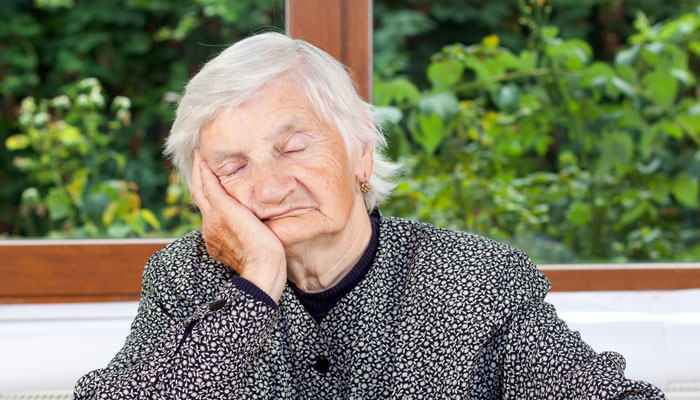
As a caring family member or friend, you play a crucial role in supporting your loved one who has been diagnosed with heart failure (HF). You may have noticed that they are more tired than usual, a common symptom of heart failure. This realization has led you to seek information on how to help them manage their heart failure fatigue, a task that is both challenging and rewarding.
What Is Heart Failure?
As we age, our risk for heart failure goes up. Heart failure is a progressive medical condition that happens when heart muscles are injured, such as from high blood pressure or a heart attack. Following this injury, you slowly lose the ability to pump enough blood to meet your body’s needs. During heart failure, your heart swells with fluid and cannot beat efficiently.
Reasons for Heart Failure Fatigue
The lack of efficient blood flow throughout your loved one’s body causes them to get tired more easily, especially when they exert themselves. Their body’s cells are hungry for more oxygen, so you may notice they feel fatigued, have shortness of breath, and need frequent naps.
Stay Physically Active
We understand that exercising with heart failure can be hard. Yet, your loved one needs to do physical activity.
Physical activity strengthens the heart muscles, improves circulation, manages weight, and reduces fatigue. Regular exercise also helps battle depression, which is common with heart failure. However, it’s important to note that before engaging in physical activity with heart failure, you should talk to your doctor.
When doing physical activity with heart failure, they should consider pacing and conserving their energy.
Pacing Is Key to Limiting Heart Failure Fatigue
They should talk to their doctor about the best types of physical activities for them. Their doctor may recommend starting with walking, swimming, or biking. Yet, as their condition progresses, simple tasks, such as taking a shower or cooking a meal, may qualify as exercise.
They should ask their doctors about getting a prescription to work with a cardiac rehab team. A cardiac rehab team can create an activity plan tailored to their needs.
Conserving Energy
Our energy is like a tank of gas. We need it to do things, but we have a limited supply. Your tank is larger than your loved ones. Their smaller tank needs to be “fuel efficient.” So, when they conserve their energy while doing chores, they have more “in the tank” for things that bring them joy and meaning. There are many ways they can improve their “fuel efficiency:”
Alternating Periods of Rest & Activity
Your loved one will need more time to finish their activities because they need more rest. So, have them switch between doing an activity and taking a rest. For example, they can break large chores into smaller tasks over a day or week.
No Rush
Never rush your loved one. Rushing will waste their energy. Instead, please encourage them to take their time and offer help when you can.
Work Smarter, Not Harder
To help limit their fatigue, your loved one should work smarter, not harder. Therefore, they should boost their task efficiency.
Going up and down stairs can increase their fatigue. You can help them limit their trips where they need to take the stairs. Carrying their items for them or finding a more effective system are great solutions.
Let’s be real: Cooking takes a lot of energy. Instead of cooking their meals every day, they can cook large quantities of food at a time. The leftover food can be frozen and reheated later. They can also hire a meal delivery service so they do not have to cook.
Although we may not feel like we use much energy drying ourselves after a shower, your loved one may. Instead of towel drying, they can slip on a terrycloth bathrobe.
Help with Mundane Tasks
They should get help with mundane tasks like grocery shopping, cleaning, and picking up medication. No worries if you or another loved one are not available to help.
Thankfully, many grocery stores and pharmacies can deliver their items to their door. If the store does not offer this option, you can look into a delivery service like Instacart.
Workstations
Workstations are another great way to lower their energy use. Creating workstations will give them everything they need for different tasks in a certain space. This is helpful for tasks like cooking, grooming, dressing, and bathing while seated.
Carrying Support
You have probably noticed that pushing your groceries is easier than carrying them in your hands. This extra support makes our lives easier, and we do not need to use as much energy. So, your loved one should use a cart or a walker with a basket to help them carry things from place to place.
No Bending or Reaching
When we bend or reach for an object, we use energy to do these motions. Your loved one with heart failure should avoid bending and reaching. We understand that this sounds easier said than done. Yet, extenders can help them grab things with limited energy.
Careplan Can Help Your Loved One
As Greater Cleveland’s experts in family caregiving, we are here to support you and your loved one. We understand that your loved one’s quality of life depends on how much time they spend doing things they enjoy. Contact us today, and we can help them identify ways your loved one can conserve energy so they can do things they love.

